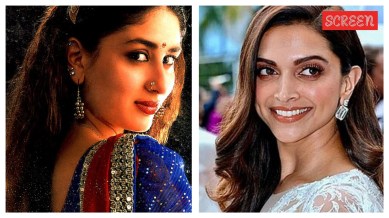Click here to follow Screen Digital on YouTube and stay updated with the latest from the world of cinema.

Deepika Padukone has been rallying for fair treatment of women actors on film sets, from the work hours, working conditions to pay parity. She recently walked out of two big Telugu projects — Sandeep Reddy Vanga’s Spirit and Nag Ashwin’s sequel of Kalki 2898 AD — because the makers couldn’t accommodate her demands, including eight-hour work shifts, which she claims many male co-stars have been following for years.
Now, filmmaker Sudhir Mishra, best known for Chameli (2004) and Hazaaron Khwaishein Aisi (2003), has opened up on the issue of the lack of pay parity in the Indian film industry. “Parity means if the woman’s part is as good as the man’s then she should get paid as much. If it’s more then she should get paid more. But it’s also got to do with box office. One thing you’ve to understand is in cinema, you don’t get paid, you get a share in the profits. In cinema, a star gets paid more because he brings in the box office. Now, sometimes, some stars are paid more than the money they bring in, and that’s a whole another story,” said Mishra.
Mishra added that Deepika is the parallel lead in all the movies she did with director Sanjay Leela Bhansali, so it’s “about time” she should get paid as much. Of the three movies Padukone has done with Bhansali — Goliyon Ki Rasleela: Ram-Leela (2013), Bajirao Mastani (2015), and Padmaavat (2018) — she was paid Rs 12 crore for the latter, a couple of crores more than her male co-stars Ranveer Singh and Shahid Kapoor.
Mishra recalled that Kareena Kapoor “must have been paid more than” her male co-star Rahul Bose in Chameli. “That was upto Pritish (Nandy, producer). I wasn’t involved. Rangita Nandy (daughter) is the person that question should be asked to. But of course, she should’ve been paid more. That was her part,” said Mishra.
Mishra heaped praises on Kareena and said she was “just outstanding.” “She’d come from popular cinema. So, she hadn’t worked with a script before. And there was some genetic playing in her mind, with Raj Kapoor (late legendary filmmaker-actor, her grandfather), her father (actor Randhir Kapoor), and Babita (Kapoor, mother and actor). So, her instinct was amazing. One day, when I was shooting for her, she was so great I forgot to say cut. And she didn’t stop. Then she did something that I never told her. So, I realized her professionalism as an actor, as Raj Kapoor’s granddaughter, doesn’t allow her to stop till the director says cut. So then, she stays on. She improvised. So, I changed the whole way of doing the film. I kind of followed her. It’s just centred around this one person. And it worked,” recalled Mishra.
The filmmaker claimed Chameli “restarted” Kareena’s career because at that time, the popular Hindi film industry “had gone away from her.” Right before Chameli, Kareena had delivered a string of underwhelming films like Mujhse Dosti Karoge! and Jeena Sirf Merre Liye in 2002 and Talaash: The Hunt Begins…, Khushi, and Main Prem Ki Diwani Hoon in 2003. However, after the success of Chameli, she was cast in critically acclaimed films like Mani Ratnam’s Yuva and Govind Nihalani’s Dev in the same year.
Also Read — GenZ watches Kareena Kapoor’s Chameli: Actor deserved a National Award for this cinematic piece
Mishra also recalled how he came onboard Chameli by chance. After the original director, Anant Balani died of a heart attack while shooting Chameli, producer Pritish Nandy roped in Mishra. However, since Balani was mostly improvising from a “sketchy” script he had, Mishra requested for 15 days from Nandy to rewrite the script before starting the shoot.
Click here to follow Screen Digital on YouTube and stay updated with the latest from the world of cinema.